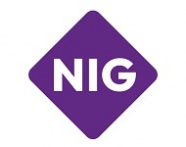Indexation - how it will impact you and your clients

Authored by NIG
At NIG, we index link the Property elements of all our products. This is sometimes known as indexation, and essentially ensures some form of suitable inflation protection for customers’ insured properties by adjusting the declared value.
There are several factors that now make this indexation more important than ever. One is the significant rise in demand for building materials, and disruption to the global supply chain caused by to the pandemic and national lockdowns. Certain elements of Brexit and local shortages of suitable labour are also affecting rebuilding and claims costs.
How does index linking work?
At each renewal of a policy, we have adjusted the property sum insured, either by applying a flat rate of increase, or having tracked indices of property value. We calculate these indices from data provided by RICS, the ABI and the Office for National Statistics. In recent years, these indices have grown at a relatively low rate, but in 2021, the rate of growth has been more significant and sustained. So we are now taking additional action to ensure our customers continue to fully benefit from the index linking we apply.
What’s changing and when?
- Our eTrade Property Owners product will move from the current 3% flat rate for property values to rates that will match the indices above. Starting from February 2022 renewals, this will be 9.51% for Buildings and 12.7% for Contents.
- We will make the same changes for our Business Package, Shop and Office eTrade products in Q1 2022.
- The Commercial Combined suite of products already applies indexation at these higher rates.
- Due to the bespoke nature of the Premier Property Owners product, declared values are agreed individually and are not subject to automatic index linking.
We’ll monitor the indices monthly and adjust these figures accordingly during 2022. The pricing impact of the increased valuations may in part be offset within our pricing algorithms, although some customers may see price increases. However, we believe this change will benefit the customer by ensuring they are insured adequately. Under-insurance can significantly affect a claim settlement. See our three case studies.
Keeping the right cover during an inflationary period
With inflation so high, it’s now more important to have buildings’ values declared correctly and to review this regularly. We can provide access to a building e-valuation to help you make sure your customer’s property is insured for the right amount. It’s worth noting that the indexation change may also provide a good opportunity to discuss other areas of policy cover that could be affected by inflation, such as the impact on non-indexed sums insured, wage rolls and the effect the availability of materials and labour may be having on settlement time for individual claims.
Please note, for some risks a 12-month Business Interruption indemnity period may not be sufficient, and you should factor inflation into the calculation of both the sum insured and the selected indemnity period. Each risk is different, so we’ve provided a Business Interruption Cost Calculator to help you and customers determine the correct sums.
Three case studies that show the importance of indexation
- When a large commercial property was destroyed by fire, the declared value previously thought adequate was roughly £3 million. When investigations revealed the sum insured was only 62% adequate, the building now having been worth nearly £5 million, the Insured opted to take a cash settlement.
- Following a substantial fire at a residential property, the value at risk was estimated at £3.6 million yet the declared value had been £2.9 million. With a loss estimated at £1 million, we progressed with a proportional settlement of 79% towards this loss. The situation was further complicated by delays in the process of reinstatement which breached the two-year limit on alternative accommodation due to the high-spec nature of the property.
- A landlord’s property had a declared value of £264,000, yet upon a claim for escape of water damage, was found to have a value of £362,000. With the claim for damage being £45,600, only 72.9% of this amount was settled, in proportion to the difference in declared values.
About NIG
We’ve been experts in commercial insurance for 125 years.
The National Insurance and Guarantee Corporation (NIG) is a broker only insurer; we believe in getting to know both the brokers we work with and their clients’ businesses, building trusted partnerships that last for the long-term. Our highly experienced underwriting team are focused on working with brokers to identify and understand the risks faced by UK enterprises. Together, with our risk control experts and risk management tools we develop solutions to help UK enterprises reduce and mitigate key exposures. We offer a wide range of products with flexibility to create tailored insurance cover and when clients need us, claims are dealt with quickly and fairly through a proactive claims approach.
Our trading model has been designed to reflect the differing requirements of how brokers like to trade, with regional offices, National Trading Centre, National Schemes Centre, eTrade Centre of Excellence and dedicated experts for specialist sectors.
We’re investing in new technology to make us even easier to trade with. We’re launching an online risk management resource supported by our in-house Risk Control Team and introduced online claims submissions to speed up the claims process, minimising disruption to clients’ businesses. We are also the only insurer two years running with a five-star rating for both TheHub and Software Houses, in the Insurance Times 2019 and 2020 eTrade survey.
We are dedicated to making UK enterprises more resilient.
NIG is a wholly owned subsidiary of Direct Line Insurance Group plc, providing stability and financial strength. Our policies are underwritten by U K Insurance Limited.

